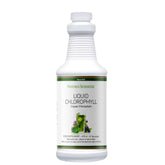What is The Gut Microbiome?
The gut microbiome encompasses a diverse community of microorganisms residing in the intestines, comprising approximately 200 different species of bacteria, viruses, and fungi. While some of these microbes can be detrimental to health, many are vital for maintaining a healthy body.
Essentially, the state of your gut profoundly influences various body systems and functions. A well-functioning gut supports overall bodily health, while issues within the digestive tract can lead to a cascade of health problems if left unaddressed. Your intestinal health is intricately connected to the well-being of your digestive system, which processes food, extracts nutrients, and eliminates waste and toxins. Within the gut reside millions of beneficial bacteria crucial for nutrient absorption, emphasising the significance of achieving a balanced gut ecosystem for optimal intestinal health. Thus, nurturing gut health is integral to maintaining overall well-being.
An unhealthy gut can often be attributed to various lifestyle factors, such as excessive stress, poor dietary choices, inadequate rest, and indulgence in habits like consuming alcohol, caffeine, and processed foods. These factors can disrupt the delicate balance of beneficial bacteria in the gut, leading to various symptoms like bloating, constipation, diarrhoea, or heartburn. Additionally, the use of prescription antibiotics can further disturb this balance, affecting not only digestive health but also impacting other vital bodily functions such as the brain, heart, immune system, and skin. Changes in weight, sleep disturbances, and increased susceptibility to infections or illnesses may also signal an unhealthy gut, as the gut plays a crucial role in regulating immune function and producing essential hormones like serotonin. Emerging research underscores the profound impact of gut health on overall well-being, with connections established between gut microbiota diversity and mental health disorders, autoimmune diseases, endocrine conditions, gastrointestinal disorders, cardiovascular disease, and even cancer.
Signs of Compromised Gut Health
Various aspects of contemporary lifestyles can influence your gut microbiome, subsequently impacting other facets of your health. Recognising signs of an unhealthy gut is vital for addressing underlying issues and safeguarding long-term health and wellness. Here are seven of the most prevalent signs:
An upset stomach including gas, bloating, constipation, diarrhoea, or heartburn.
Consuming a diet rich in processed foods and added sugars can diminish the population of beneficial bacteria and reduce the diversity within your gut microbiome. Studies indicate that excessive sugar intake may elevate systemic inflammation, potentially serving as a precursor to more serious diseases.
Unexplained weight changes either gaining or losing, could indicate an unhealthy gut. An imbalance in the gut can disrupt nutrient absorption, blood sugar regulation, and fat storage. Weight loss might result from malabsorption due to small intestinal bacterial overgrowth (SIBO), while weight gain could stem from insulin resistance or heightened inflammation.
Sleep disturbances or constant fatigue. Studies suggest that an imbalance in gut bacteria may contribute to disrupted sleep patterns and shorter sleep duration, potentially resulting in chronic fatigue. Although the exact cause is not fully understood, it seems to be associated with factors such as inflammation, metabolic function, and mental well-being.
Skin irritation. Skin conditions such as psoriasis might be linked to the specific bacteria found in the gut. Reduced levels of beneficial bacteria could affect both the immune system and the health of your skin.
Autoimmune conditions. A compromised gut can elevate systemic inflammation and disrupt the immune system's normal functioning. This imbalance may trigger autoimmune diseases, where the body mistakenly targets its own cells and organs as threats.
Food intolerances arise from challenges in digesting specific foods, distinct from food allergies triggered by immune system responses. Studies suggest that conditions like lactose intolerance can stem from inadequate gut bacteria quality, hindering the digestion of certain foods and resulting in symptoms such as bloating, gas, diarrhoea, abdominal pain, and nausea.
Leaky Gut Syndrome
Leaky gut syndrome, also known as increased intestinal permeability, is a condition where the lining of the small intestine becomes damaged, allowing harmful substances such as bacteria, toxins, and undigested food particles to leak into the bloodstream. This can trigger an immune response and inflammation in the body.
The link between gut health and leaky gut lies in the integrity of the gut lining. A healthy gut is characterised by a strong and intact intestinal barrier, which effectively regulates the passage of nutrients while preventing the entry of harmful substances. Factors such as poor diet, chronic stress, medications like antibiotics, and imbalances in gut microbiota can compromise the integrity of the gut lining, contributing to leaky gut syndrome.
An imbalance in the gut microbiome, can exacerbate leaky gut by promoting inflammation and damage to the intestinal barrier. Conversely, maintaining a healthy gut microbiome through proper diet, stress management, and probiotic supplementation can support gut barrier function and reduce the risk of leaky gut syndrome.
Enhancing Intestinal Health
Maintaining optimal intestinal health is paramount for overall well-being and prevention of long-term health issues. Managing stress levels is crucial, as stress impacts the entire body, including the gut. Engaging in relaxation techniques like yoga, meditation, and aromatherapy can effectively reduce stress and promote gut health.
Adequate sleep is also vital for bodily repair and rejuvenation. Adopting a balanced diet rich in lean proteins, fresh fruits, and vegetables while limiting unhealthy saturated fats and processed sugars helps maintain a healthy gut balance. Incorporating whole foods and probiotics into the diet, such as yogurt, kimchi, or sauerkraut, supports a diverse gut microbiome and alleviates digestive issues.
Hydration is essential for flushing toxins from the intestines and sustaining healthy bacteria levels. Additionally, identifying and addressing food intolerances, which can disrupt gut bacteria balance and trigger allergic reactions, is beneficial for improving gut health and overall immune function.
Improving Gut Health Naturally
Enhancing and resetting your gut health can be achieved through lifestyle and dietary adjustments. Consider implementing the following strategies:
Practice stress-reducing activities like meditation, walking, or spending time with loved ones and in nature to mitigate the impact of chronic stress on gut health.
Aim for 7-8 hours of uninterrupted sleep per night to support optimal gut function and minimise sleep-related issues.
Chew food thoroughly and eat slowly to reduce the risk of obesity and diabetes while promoting better food choices and digestive comfort.
Drinking plenty of water enhances gut microbiome diversity and may reduce the presence of harmful bacteria, supporting overall gut health and preventing constipation.
Identify Food Intolerances and address symptoms such as bloating, abdominal pain, or fatigue by eliminating potential trigger foods and observing improvements in digestive health.
Reduce consumption of processed, sugary, and unhealthy fat foods while increasing intake of high-fibre foods like legumes, whole grains, vegetables, nuts, and fruits to support a healthy gut microbiome.
Superfoods for Gut Health
Include garlic, fermented foods like kimchi and yogurt, and collagen-boosting foods such as bone broth, salmon skin, citrus fruits, broccoli, meat, eggs, and nuts to enhance gut microbiome diversity and overall health.
Lily & Loaf Pre + Pro 15
A blend of friendly bacteria with prebiotic and B Vitamin complex, Pre + Pro 15, supports intestinal health with its inclusion of 15 strains of probiotics, delivering 15 billion CFUs per serving. Crucial for proper digestion and nutrient absorption, friendly bacteria are complemented by prebiotic dietary fibre Fructo-oligosaccharides, which nourish and promote the growth of beneficial gut bacteria.
Additionally, the B vitamin complex contributes to normal macronutrient and energy-yielding metabolism, further enhancing gut health. Various factors such as antibiotics, diet, stress, and certain ailments can disrupt gut flora, affecting overall health.
Given that 70% of the immune system resides in the gut, maintaining good gut flora is essential for a healthy immune system. Moreover, as gut bacteria produce 95% of serotonin, with low levels associated with depression, low mood, and migraines, the significance of gut health extends to mental well-being.
Pre + Pro 15 aids in preventing and managing conditions like thrush and candida by fostering a balanced gut microbiome.
Furthermore, being suitable for Vegans and Vegetarians and gluten-Free, it accommodates diverse dietary preferences.
Lily & Loaf Black Walnut & Pumpkin Seed Intestinal Cleanse
Enhance your intestinal health and immunity with this high-strength supplement rich in tannins and polyphenols, providing gentle yet effective support.
Enriched with tannins for astringent and toning properties, it aids in maintaining healthy gut flora, combating harmful bacteria, soothing irritated tissue, and bolstering the immune system.
Crafted with Black Walnut's antioxidants and antibacterial compounds, alongside protein, healthy fats, vitamins, and minerals, it treats bacterial infections while Pumpkin seeds contribute to easing prostate and bladder conditions, offering a rich source of magnesium.
Gluten-free and vegan-friendly, each 45-day supply ensures optimal health with just two capsules per day.
Acti-Fit L-Glutamine
L-Glutamine plays a crucial role in maintaining gut health by serving as the primary energy source for cells in the stomach and intestines.
This amino acid promotes blood flow to the stomach and intestines, which supports the integrity of the intestinal lining. By strengthening and rebuilding the intestinal lining, L-Glutamine helps to prevent leaky gut syndrome, a condition where the lining becomes damaged, allowing harmful substances to leak into the bloodstream and trigger inflammation.
Additionally, L-Glutamine can help to alleviate symptoms of gastrointestinal disorders by supporting the repair of damaged tissue and promoting overall digestive health.
Acti-Fit L-Glutamine, providing 10,000mg of pure glutamine powder per daily serving, supports the body during physical and mental stress, aids in producing growth hormones for muscle production and maintenance, promotes digestive health by serving as the primary energy source for stomach cells, and facilitates post-exercise recovery by preventing lactic acid build-up; simply add to a small glass of water or juice once a day.










